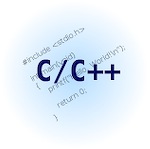Once Again, an Important Realization
Thursday, October 6th, 2011This morning, as I was getting ready, I realized that I was really worrying far too much about what was happening at work. In a technology all-hands meeting yesterday, the CTO presented the status and plans for a bunch of projects that are happening in the group. In fact, I think he hit on everyone that's more than a couple of days long - it was pretty exhaustive. So when I heard there that several projects didn't include the work I was doing - even though I was told my work was critical to these efforts, I got upset. Really upset.
If I'm working 13 hour days for this project, and it's not critical, what am I killing myself for? What's the rush? Why work so hard? No, I was told that this work I was doing was fundamentally important to the effort, and what's why I've been working this way. In short, I've been a Good Team Player - internalizing the external needs of the Team even though they are painful for me.
But in the show this morning I realized that there's no reason for any of this worry and concern. I'm giving it everything I can, and if it's not enough, then they need to replace me. If they think I'm doing a decent job, then I think things are just fine. After all, this is the place where it's expected that everyone be extraordinary (got this in my last review).
So I realized in the shower that there's no reason to get upset. I've been angry at management for quite a while, and in the end, the fact that they haven't fired me, or moved me onto a different project, means that they must think I'm "meeting expectations", and by their own definition, delivering extraordinary results.
I know they don't think this, but I'm tired that once again it seems that I've forgotten the most important lesson of working in a group - do your best, and if that's not good enough, then it's time to move on.
I'm ready to make them make that call.




